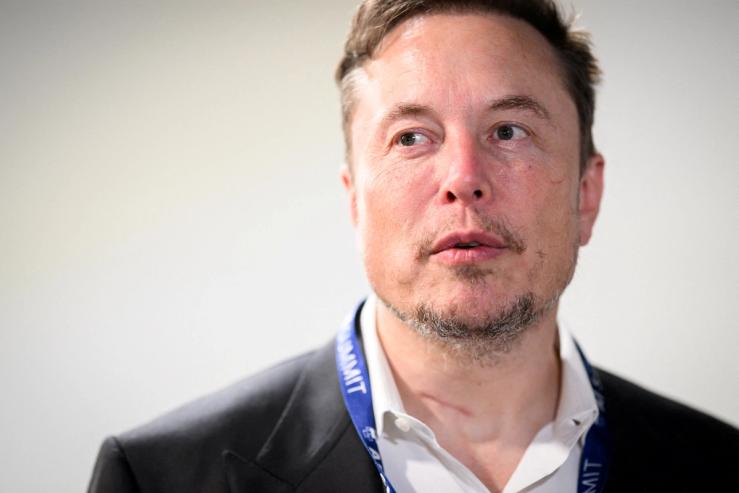
Semafor Signals
Elon Musk visits Israel amid accusations of antisemitism

The News
Elon Musk toured the site of the Oct. 7 massacre by Hamas in southern Israel on Monday, as the billionaire made a wartime visit to the nation amid allegations of antisemitism.
Musk has faced a flurry of criticism in recent days following his apparent endorsement of an antisemitic post on his social media platform, X, and a report by media watchdog Media Matters which found that antisemitic posts frequently appeared next to ads from companies like Apple and IBM.
SIGNALS
Musk, who operates the satellite internet service provider Starlink through his company SpaceX, reportedly reached an agreement with the Israeli government to limit the use of the ISP in the Gaza Strip and to implement it only with the permission of the Israeli government. Musk had previously said that Starlink would offer connectivity to “internationally recognized aid organizations in Gaza” which has seen constant internet blackouts as major operators’ services were down due to fuel shortages. The Israeli government rebuffed Musk’s offer last month, arguing that Hamas could use it as an organizational tool.
Musk’s visit has prompted backlash from some members of the Israeli media, who criticized Prime Minister Benjamin Netanyahu for hosting a man they view as antisemitic. “Hard to stomach welcoming someone who just days ago endorsed a virulently antisemitic trope, has dabbled for years in antisemitism and has turned this platform into a cesspool of hate,” Amy Spiro, a Times of Israel journalist, wrote on X. The billionaire should be “persona non grata in Israel,” Haaretz editor-in-chief Esther Solomon posted, adding, “Instead, Netanyahu — plumbing new depths of amoral sycophancy — gifts him a PR visit to the kibbutzim devastated by Hamas. Profane, venal, bilious, both of them.”
Antisemitism in the U.S. has seen an significant rise this year, the Anti-Defamation League (ADL) reported last month. The organization tracked 312 antisemitic incidents in the first three weeks of the Israel-Hamas war, and found a nearly 400% increase in hateful incidents against Jewish people when compared to the same period last year. Some of that hatred is flourishing on X: Researchers for the The Center for Countering Digital Hate found moderators on the site had failed to remove antisemitic, anti-Muslim, and anti-Palestinian content following the war. ADL CEO Jonathan Greenblatt was recently criticized for praising Musk’s “leadership in fighting hate” after Musk said that using terms such as “decolonization” and “from the river to the sea” would result in suspension from X.
A dozen brands paused their advertising spending on X last week following the Media Matters findings. X has seen an exodus of advertisers — a key pillar of its business model — since Musk took over the platform last year. Pro-Nazi accounts are thriving on the site, and moderators have done little to prevent them from posting antisemitic content. Musk’s apparent endorsement of an antisemitic conspiracy theory follows the billionaire’s own political shift in recent years, including his frequent engagement with influential right-wing provocateurs, Bloomberg notes.

